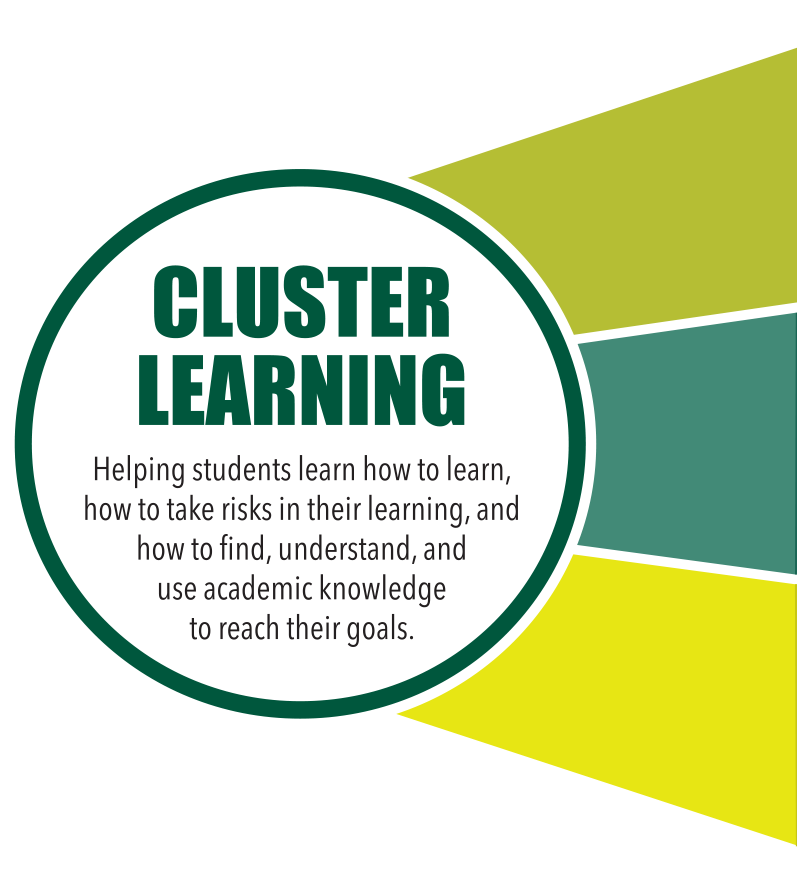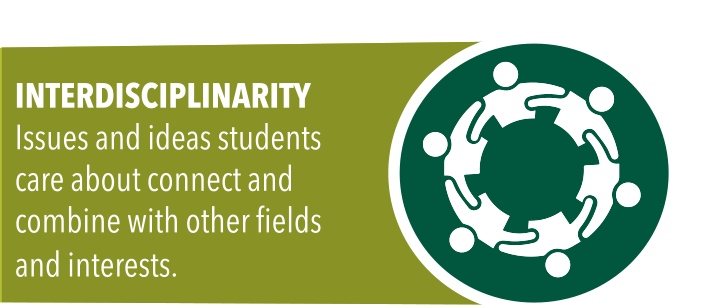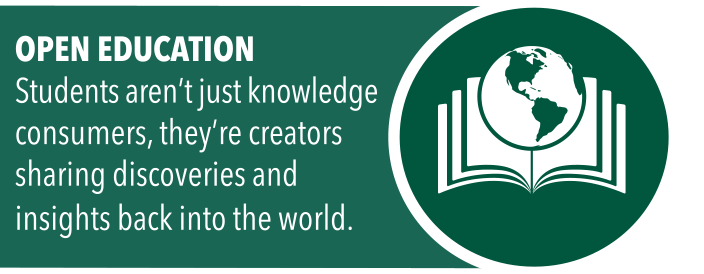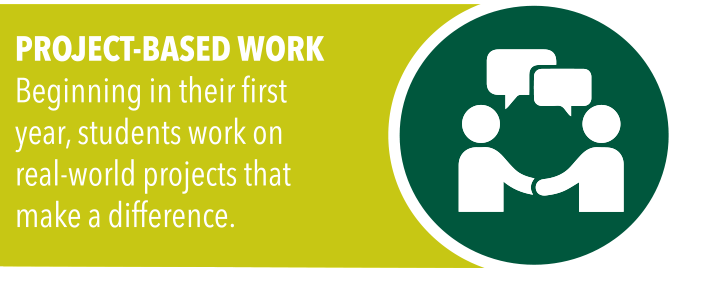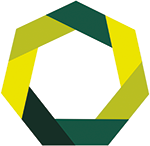 Cluster Learning
Cluster LearningWhat is Cluster Learning?
Cluster Learning powers a unique and integrated academic environment that centers on 1) interdisciplinary inquiry and research, 2) project-based learning that extends past the walls of the classroom, and 3) open educational practices that lower barriers and empower students to contribute to the knowledge commons. A deeper dive into these main features of Cluster Learning follows.
What is interdisciplinary inquiry and research?
Cluster Learning invites students to work in collaborative groups across disciplines. One example of this kind of interdisciplinary curriculum is our upper-level, integrated capstone courses (INCAPs), in which students from a range of majors come together to work on real-world projects. For instance, INCAP students have conceptualized, curated, and opened a campus art gallery that featured work by artists who are incarcerated. In another INCAP course, students researched food insecurity among college students and established a centrally located, on-campus food pantry that continues to feed our community. In these and other courses, students draw on expertise that they’ve gained in their major field of study to collaborate across disciplines and make their own, signature contribution to the world. In this way, their work has a lasting impact long after the semester is over.
What is project-based learning that extends past the walls of the classroom?
Project-based learning is an approach to education that allows students to learn the content of a course by working on a project that impacts the wider world. It is the vehicle for teaching the important skills, approaches, and knowledge that students need to be successful in both their academic and later careers. Students are challenged to engage in sustained inquiry about an authentic problem or question that they choose and then decide how to address it. They receive feedback and critique on each stage of development and revise the project in response, ultimately creating a public product that engages the world outside of the classroom. First-year students in our Tackling a Wicked Problem (TWP) course have chosen to address the issue of homelessness by mounting a clothing drive for the local homeless shelter, while other TWP students addressed climate change by building prototypes of small, personal windmills. Through engaging in these projects, students discover how to make a difference in the world.
Open Education is a rapidly growing approach to education that helps to open doors to learning for anyone, regardless of what resources or challenges they may have. Open Education is well-known for its commitment to Open Educational Resources (OER), which are free books and learning materials that students and faculty can use, share, and revise. Open Education lowers barriers to access starting with textbook costs and extending to meeting students’ basic needs. It also facilitates Universal Design for Learning (an approach to curriculum design that provides all individuals with equal opportunities to learn), and creating inclusive classroom spaces.
Open Education also empowers students by helping them see how their voices matter to the future of our world, such as when faculty involve them in making new knowledge and sharing it as part of the learning process. For example, PSU students in multiple courses have co-written textbooks that are now in use at institutions around the United States and internationally.
The key to Cluster Learning is that it focuses on the process by which our students learn. Our courses focus less on final products and more on helping students learn how to learn, how to take risks in their learning, and how to find, understand, and use academic knowledge to help them reach their life and career goals. Cluster Learning breaks down boundaries between disciplines, between the classroom and “the real world,” and between teacher and student so that we are all learners, who—together—can change the world. ■ Cluster Pedagogy Learning Community
